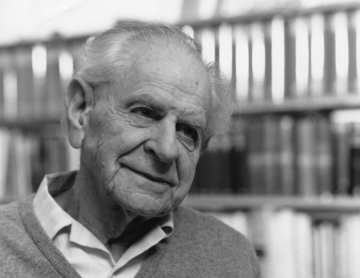Josh Jones in Open Culture:
 In the past few years, when far-right nationalists are banned from social media, violent extremists face boycotts, or institutions refuse to give a platform to racists, a faux-outraged moan has gone up: “So much for the tolerant left!” “So much for liberal tolerance!” The complaint became so hackneyed it turned into an already-hackneyed meme. It’s a wonder anyone thinks this line has any rhetorical force. The equation of tolerance with acquiescence, passivity, or a total lack of boundaries is a reductio ad absurdum that denudes the word of meaning. One can only laugh at unserious characterizations that do such violence to reason.
In the past few years, when far-right nationalists are banned from social media, violent extremists face boycotts, or institutions refuse to give a platform to racists, a faux-outraged moan has gone up: “So much for the tolerant left!” “So much for liberal tolerance!” The complaint became so hackneyed it turned into an already-hackneyed meme. It’s a wonder anyone thinks this line has any rhetorical force. The equation of tolerance with acquiescence, passivity, or a total lack of boundaries is a reductio ad absurdum that denudes the word of meaning. One can only laugh at unserious characterizations that do such violence to reason.
The concept of toleration has a long and complicated history in moral and political philosophyprecisely because of the many problems that arise when the word is used without critical context. In some absurd, 21st century usages, tolerance is even conflated with acceptance, approval, and love. But it has historically meant the opposite—noninterference with something one dislikes or despises. Such noninterference must have limits. As Goethe wrote in 1829, “tolerance should be a temporary attitude only; it must lead to recognition. To tolerate means to insult.” Tolerance by nature exists in a state of social tension.
More here.
